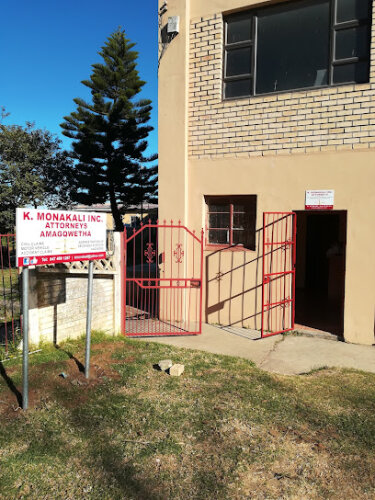Best Wrongful Termination Lawyers in East London
Share your needs with us, get contacted by law firms.
Free. Takes 2 min.
List of the best lawyers in East London, South Africa
About Wrongful Termination Law in East London, South Africa
Wrongful termination refers to the unlawful dismissal of an employee by an employer. In East London, South Africa, wrongful termination is protected against by national labour laws, including the Labour Relations Act (LRA) and the Basic Conditions of Employment Act (BCEA). These laws apply to most employees and employers in the region. Wrongful termination may include dismissals that are unfair, without a valid reason, or without following proper procedures as required by law.
Typical forms of wrongful termination can include dismissal without proper notice, termination for discriminatory reasons (such as race, gender, or religion), or being fired for whistleblowing or participating in lawful trade union activities. If you have been dismissed under circumstances you believe are unfair, you may have grounds to challenge the termination and seek remedy.
Why You May Need a Lawyer
Wrongful termination cases can be complex, and the legal process may be intimidating or confusing, especially without legal knowledge. You may need a lawyer for the following reasons:
- Understanding Your Rights: A lawyer can explain your rights under the current employment law framework.
- Evaluating Your Case: Not all terminations are wrongful. A lawyer can assess if your dismissal qualifies as wrongful based on the facts.
- Negotiating with Employers: Legal representation can aide in negotiating settlements or severance agreements.
- Filing Claims: Lawyers can assist in filing claims at bodies such as the Commission for Conciliation, Mediation and Arbitration (CCMA).
- Court Representation: Should your case proceed to court, it is crucial to have a knowledgeable advocate on your side.
Local Laws Overview
In East London, as elsewhere in South Africa, the main statutes governing wrongful termination are:
- Labour Relations Act (LRA): Details the procedures and substantive grounds required for fair dismissal.
- Basic Conditions of Employment Act (BCEA): Defines basic employment conditions, notice periods, and protections against unfair practices.
- Employment Equity Act: Prohibits dismissal based on discrimination (such as age, race, gender).
A dismissal is generally considered unfair if there is no fair reason (such as misconduct, incapacity, or retrenchment) or if the correct procedures are not followed. Employees are typically entitled to notice or payment in lieu of notice, except in cases of serious misconduct.
The CCMA is commonly the first step for dispute resolution in wrongful termination cases, offering conciliation and, where necessary, arbitration. Legal representation may sometimes be restricted at the CCMA, but is almost always allowed if the matter proceeds to the Labour Court.
Frequently Asked Questions
What qualifies as wrongful termination?
Wrongful termination occurs when an employer dismisses an employee without a valid reason, or fails to follow the correct procedure. Examples include termination based on race, gender, or retaliation for whistleblowing.
How do I know if my dismissal was unfair?
If you were dismissed without a fair reason, proper notice, or a hearing (where applicable), your dismissal may be unfair. The law lists valid reasons and processes, and failing to meet these is unfair.
What steps should I take if I think I was wrongfully terminated?
You should collect all relevant documents (employment contract, termination letter, communication with employer) and seek legal advice. You can also approach the CCMA within 30 days of dismissal.
Do I need to have a written employment contract to claim wrongful termination?
No, even if you do not have a written contract, South African labour law still protects you. Verbal contracts and other evidence may be used.
Can I represent myself at the CCMA?
Yes, you can represent yourself, but legal advice is helpful. Lawyers are allowed in some cases, especially where the case is legally complex.
Is it possible to settle a wrongful termination case out of court?
Yes, many cases are resolved through negotiation or conciliation before reaching a court or the CCMA's arbitration stage.
What compensation can I claim for wrongful termination?
Compensation may include reinstatement, payment of lost wages, or other remedies such as damages for emotional distress in limited cases.
How long do I have to file a complaint?
You must refer an unfair dismissal dispute to the CCMA within 30 days of the date of your dismissal.
Are all terminations considered wrongful if proper procedure is not followed?
Failure to follow proper procedure can render a dismissal unfair, whether or not the reason was valid. Both substantive and procedural fairness are required by law.
Who can I approach for help besides a lawyer?
You can approach the CCMA, trade unions, or the Department of Employment and Labour for guidance and support with wrongful termination disputes.
Additional Resources
Here are some useful resources for people dealing with wrongful termination in East London, South Africa:
- Commission for Conciliation, Mediation and Arbitration (CCMA): Offers dispute resolution services for unfair dismissals.
- Department of Employment and Labour: Provides advice and can investigate labour complaints.
- South African Local Trade Unions: Unions can support workers and provide representation.
- Legal Aid South Africa: Offers free or low-cost legal services to qualifying individuals.
Local community law centres and the Small Claims Court can also provide assistance in certain situations.
Next Steps
If you believe you have been wrongfully terminated in East London, South Africa, consider the following steps:
- Gather all relevant documents, including your contract, payslips, and correspondence with your employer.
- Write a detailed account of events leading up to your dismissal.
- Consult with a qualified employment lawyer for an initial assessment of your case.
- Contact the CCMA to file a complaint within 30 days of your dismissal.
- If you are a union member, reach out to your union for support and guidance.
- Continue to seek legal advice if your case proceeds beyond the CCMA, especially if it reaches the Labour Court.
Taking prompt, informed action is essential to protecting your rights and improving your chances of resolving a wrongful termination issue successfully.
Lawzana helps you find the best lawyers and law firms in East London through a curated and pre-screened list of qualified legal professionals. Our platform offers rankings and detailed profiles of attorneys and law firms, allowing you to compare based on practice areas, including Wrongful Termination, experience, and client feedback.
Each profile includes a description of the firm's areas of practice, client reviews, team members and partners, year of establishment, spoken languages, office locations, contact information, social media presence, and any published articles or resources. Most firms on our platform speak English and are experienced in both local and international legal matters.
Get a quote from top-rated law firms in East London, South Africa — quickly, securely, and without unnecessary hassle.
Disclaimer:
The information provided on this page is for general informational purposes only and does not constitute legal advice. While we strive to ensure the accuracy and relevance of the content, legal information may change over time, and interpretations of the law can vary. You should always consult with a qualified legal professional for advice specific to your situation.
We disclaim all liability for actions taken or not taken based on the content of this page. If you believe any information is incorrect or outdated, please contact us, and we will review and update it where appropriate.










